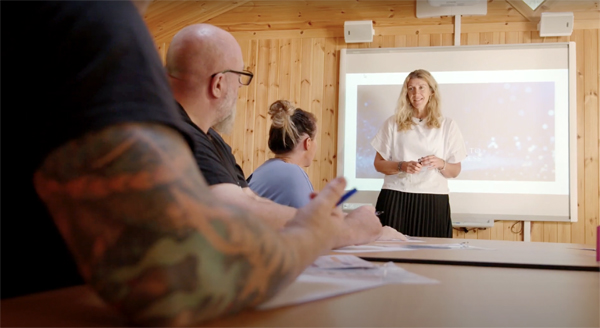Support for retired police officers

Flint House Police Rehabilitation is a charity, entirely funded by donations from those in the police service and their families.
It is with these generous donations that we help and heal over 3,200 serving and retired police officers each year, providing physical rehabilitation and mental health support.
At Flint House we are always looking to implement significant enhancements to our patient offering. One such area is our support programme for retired police officers. For a monthly donation of just £5 retired officers who are in receipt of a police pension, or medical pension, are eligible to apply for physical rehabilitation or mental health support.
We know that physiotherapy is expensive in the private sector and there are long waiting times within the NHS, so what we offer is incredible value for money, geared towards precise needs. Whether it’s for a new injury, post-operative rehabilitation, physiotherapy for cancer, or long-standing back or knee pain – we are here to help recovery. Our mental health support programme is specifically aimed at retired members of the service and includes exclusive sessions to deal with stress, anxiety and depression.
Flint House Police Rehabilitation was founded in 1890, back in the days when bobbies wore stove-pipe hats. The Charity has evolved over the years, and is now at the forefront of modern physical rehabilitation and mental health support, offering both serving and retired officers flexible, needs based programmes.
The first Police Seaside Home, Clarendon Villas, was established in Hove in 1890 by philanthropist Miss Catherine Gurney. The Home moved to a new purpose-built building, Portland Villas in 1892 and 70 years later as patient numbers increased moved again to the larger premises of Kingsway. By the 1980s, as demand continued to grow, a new home with improved facilities and greater capacity was needed, which is when we moved to Flint House in Goring-on-Thames.
Over the decades, Flint House has expanded to accommodate more patients, with improved facilities including accommodation, hydrotherapy pool, modern gym, an all-weather outdoor pitch and mental health support.
If you are in receipt of a police pension, start making your monthly donation via Direct Debit and once your first payment has cleared you will be able to apply for either physical rehabilitation or mental health support.
If you spent the majority of your police service in one of Flint House Police Rehabilitation’s (Goring) constituent forces, or since retiring have relocated to a Flint House constituent force, you are eligible to donate and apply for treatment – you will need to be in receipt of a police pension or in receipt of a medical pension, and you must not have been dismissed as a result of gross misconduct.
Flint House is run by a team of Trustees who oversee and direct our work, and a leadership team responsible for the day-to-day running of the charity. Our Trustees consist of both senior and junior members of the police service, clinicians and practitioners with extensive NHS experience, business people and lay members.
“Officers need to know that we are here for them at every stage of their careers. We help officers who need a firebreak from the daily routine of serving their communities. I want all officers to understand Flint House can help with mental and physical health all the time, not just when the wheels come off.”
Tom Gaymor
Flint House Trustee
BETTER THAN THE RITZ!
An 81-year-old retired Metropolitan Police officer who recently received treatment at Flint House said: “I couldn’t have asked for better service at The Ritz!”
Bob Potten was a Met PC from 1961 until he retired in 1993. He now has Parkinson’s disease and was staying at Flint House to get physiotherapy on his legs.
He said the physio had worked wonders, so much so that he was now able to walk his dog for a short distance without using his mobility scooter.
He said: “The physio staff and the nurses were always asking if they could do anything for me.
“Everybody, from the kitchen staff to the chef, were so kind. I’ve got Parkinson’s, my hands shake and I was a little embarrassed at first by my eating, particularly soup.
“But they put it in a cup for me and gave me a straw and after that it was like heaven. It’s the little things like that. They always asked me what I wanted for my meals, and said, ‘Go and sit down Bob, we’ll bring it to you’. They couldn’t do enough.”
Bob has received treatment from Flint House on several occasions over the years, and in 1962 he was even treated at the previous Police Convalescent Home, in Hove, East Sussex.
He said he always encouraged younger officers to pay in to Flint House. He said: “It’s ridiculous not to sign up to Flint House when you think of the benefits you get. You’ve only got to use it once and it would pay for itself.”




